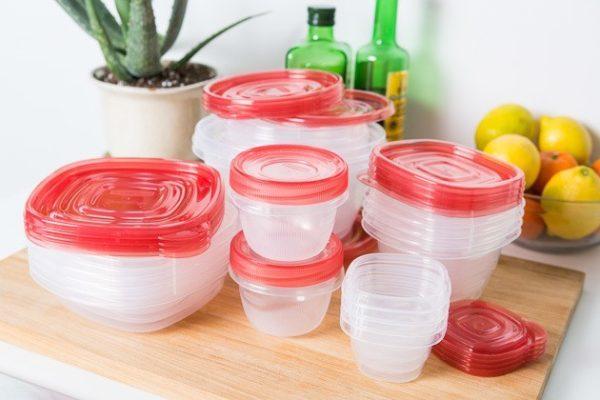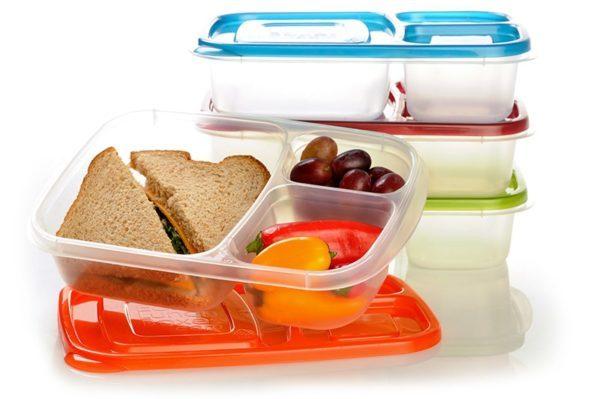Although plastic containers have cheaper prices than glass containers, buying these types of containers can ultimately affect your family’s health over time because they tend to include hazardous substances. Therefore, this post will help you learn more about the harmful effects of some storage containers over others and the way to choose the best food storage containers for your family.
1. The harmful effects of plastic containers
When using poor quality plastic containers to contain an assortment of hot foods or processed foods when reheating in the microwave at high temperatures, the additives or harmful ingredients in plastic containers will soak into the food. In the market, there are a few types of plastic that can withstand temperatures from 150 to 200oC. However, when using this type of plastic to produce food containers, the manufacturer has added some other additives to increase product quality and reduce production costs. These additives are not conducive to human health, so if you use the product in long-term, they can affect your health. The best plastic for making food containers is PP (Polypropylene), which is non-toxic and very flexible. If the plastic used for food containers is recycled from waste plastic, it is very toxic because they only tolerate temperatures between 70 and 80oC, so when used for packaging hot food or exposure to high heat sources, the harmful ingredients can be released.
2. The way to choose the best food storage containers
Choosing food storage containers is an important thing with people, so you should learn more about the way to choose the best type of food storage containers to use. There are seven types of plastic containers with different features:
Type 1: All products that are made by polyethylene terephthalate (PETE) are quite safe and regarded as not being harmful to your health. However, the products made from this plastic are often used one time because its surface is capable of accumulating bacteria and it is difficult to kill them just by using water to wash them normally. The plastic is used to make water bottles and 16.9 fl oz beverage bottles, such as the kinds used to hold mineral water, cola, syrup, and so on. This is the reason why you should not reuse such bottles. Type 2: HDPE is considered to be relatively safe because the ability to smell and accumulate bacteria on the surface is relatively low. However, the disadvantage of this plastic is its milky color. Therefore, people often use this kind of plastic for containing water, juice, and milk. Type 3: PVC is very dangerous if you use the material to produce all kinds of plastic containers for food storage containers because of its ability to prevent the development of hormones and decrease fertility. Furthermore, PVC is very susceptible to distortion when used for holding hot foods or exposure to high temperatures. Type 4 and 5: They are quite similar in structure and functions. Type 4 is often used to produce all kinds of wrapping paper and food wrap film. Type 5 is suitable for making plastic bottles and food storage containers. In fact, these types of plastics are quite safe for human health. However, you should choose the containers that have number 5 on the surface to avoid toxicity. Type 6: This plastic is quite similar to type 1 because it is also used to create plastic products for one time use. However, this type of plastic also contains toxic substances that affect human health because, when exposed to high temperatures, the material can soak into the food. Type 7: It is a mixture of Polycarbonate and BPA. This is the plastic used for packaging food and it contains substances with no health benefits.
In summary, when choosing food storage containers, you should choose the containers that are made of a type 2, 4 or 5 for plastic for packaging and food preservation.[1] Furthermore, in order to protect your health, you should limit exposure to high heat sources to prevent food from becoming tainted with toxic substances. Featured photo credit: Pleasant Kitchen via pleasantkitchen.com

